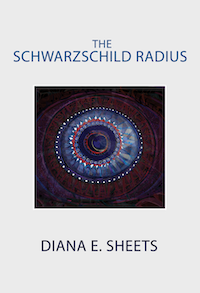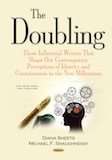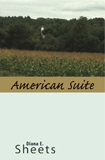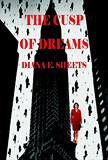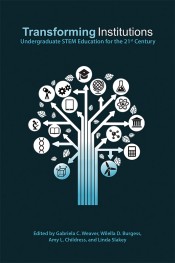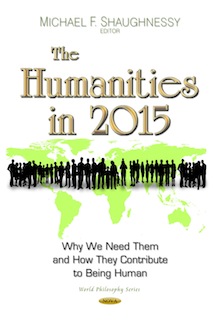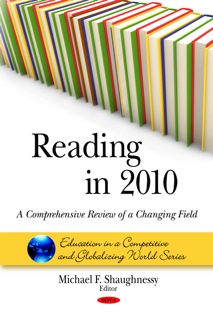Norman Mailer: "History as a Novel/The Novel as History," Part I
Copyright © 2008 by Diana E. Sheets
Norman Mailer, narcissist writ large, possessed nothing if not gargantuan ambition. His death last November was our loss. For his generation—best exemplified in the writings of Wolfe, Roth, and Mailer—strove mightily to present the American story from a panoramic vista informed by social realism. Part I will examine his 1959 essay “The Argument Reinvigorated” in order to understand Mailer’s assessment of why American fiction has failed to tell our national story (Cannibals and Christians, The Dial Press, 1966, 95-103). Part II, which will be posted next month, will consider three of Norman Mailer’s “nonfiction novels.” Part III will follow. It will analyze these "novels" with respect to the arguments presented in “The Argument Reinvigorated” before speculating about the future of American literature.
In “The Argument Reinvigorated,” Mailer suggested that no American novel has distilled the essence of national character to a single work magnificently situated in time and place.
No [American] writer succeeded in doing the single great work which would clarify a nation’s vision of itself as Tolstoy had done perhaps with War and Peace or Anna Karenina, and Stendhal with The Red and the Black, no one novel came along which was grand and daring and comprehensive and detailed, able to give sustenance to the adventurer and merriment to the rich, leave compassion in the icechambers of the upper class and energy as alms for the poor. (98-99)
Mailer attributed this failure of clarity with our unique economic and social heritage. American exceptionalism shaped his argument. His underlying assumptions were the following.
Today, of course, historians challenge the Euro-centric narrative that was commonplace when the essay was written in 1959. They reject the very idea of a “melting pot.” They emphasize the terrible injustice experienced by Native Americans and African Americans. They place far greater emphasis on immigrants from post-colonial regions that represent “diversified”
How, then, would a single novel have distilled the essence of the American story? According to Mailer, there emerged two distinct approaches: the Novel of Manners and the novel based on Naturalism. The Novel of Manners had precise rules of social engagement that mimicked and looked to the Continent for approbation. It abhorred hardship. It was concerned with depicting the exterior interactions of the socially privileged with an emphasis on deportment. Writers who penned the Novel of Manners were genteel, WASP, and “aristocratic.” The most representative of these writers, suggested Mailer, was Edith Wharton. Female readers hungered for stories revealing the lives of the most privileged. These readers were averse to stories that depicted the desperate human struggle for survival. The Novel of Manners was a retreat from the competitive and inherently violent world. Naturalism was its masculine counterpoint, a bestial purgatory that, were it able, would lay waste to civilized society.
Henry James’s novels, Mailer suggested, were a kind of realism that closely paralleled the style and method of the Novel of Manners. For this reason, he argued, they need not be considered separately. However, for James “what a man thinks and what he feels are the history and the character of what he does.” This orientation helped pave the way for the emerging Novel of Consciousness (Dorrit Cohn, Transparent Minds, Princeton University Press, 1978, 114). Mailer suggested that James was sufficiently deft to avoid the worst pitfalls inherent in the Novel of Manners—an achievement born of narrative complexity and experimental technique (CC, 98).
Nevertheless, both the Novel of Consciousness and its symbiotic partner, the Novel of Manners, were antagonistic to Naturalism. Both were written by genteel writers for readers who were—or aspired to be—affluent. Both eschewed depictions of harsh reality. Their readers did not want to know the circumstances that might befall those less fortunate. They abhorred degradation and sought escape from the violent and cruel hyper-reality of Naturalism pioneered by the French writer Émile Zola. Indeed, as Northrop Frye noted, there is an inherent antagonism between describing the real and creating the fictive world of the literary imagination. “The realistic writer soon finds that the requirements of literary form and plausible content always fight against each other” (George Levine, “The Realistic Imagination,” excerpted in Theory of the Novel, Edited by Michael McKeon, John Hopkins Press, 2000, 619). This tension was evident when Henry James, in reviewing Zola’s Nana (1880), was uncharacteristically bitter, “On what authority does [M. Zola] represent nature to us as a combination of the cesspool and the house of prostitution? On what authority does he represent foulness rather than fairness as the sign that we are to know her by?” (Levine, 615).
American Naturalism, Mailer suggested, was written by the sons of immigrants: Farrell, Steinbeck, and, most especially, Dreiser. They were lower or lower middle class and intimately acquainted with the hardships of ordinary people trying to survive under mean circumstances. American Naturalism abounded with sordid tales of hardship, vice, crime, and greed that revealed our animalistic nature. On those rare occasions that privileged writers—most famously John Dos Passos—descended into the abyss, they never managed to capture the grit, the stench, the murderous brutality that necessarily insisted on bleeding through the pages.
This dichotomy in American letters, argued Mailer, was between the Novel of Manners, penned by the WASP elite, and the novel based on Naturalism, written by the ethnic sons of immigrants struggling to write the authentic American story. If the former was emulative of its European counterparts, the later, although influenced by Zola, was shaped by American exceptionalism. If the Novel of Manners was a carefully staged choreography of the outer trappings of American power and privilege, Naturalism was saturated with acts of extreme heroism and barbaric crimes. If the Novel of Manners was romantic escapism, Naturalism was ultra-reality, its characters exhibiting chivalric virtue and utter depravity. If the Novel of Manners was a simulacrum of European civility, Naturalism was the American demimonde where change, not stasis, pulsed fiercely.
Of all the Naturalists, Mailer suggested, Dreiser most nearly succeeded in depicting the complex social mechanisms at play in
The failings of Dreiser’s fiction were more than just of dimension and breath; his work struggled to keep abreast the ferocious pace of modernity. For as Mailer noted, “There was something going on in American life which was either grand or horrible or both, but it was going on—at a dizzy rate—and the future glory or doom of the world was not necessarily divorced from it” (96).
Dreiser came as close as any, and he never got close at all, for he could not capture the moment, and no country in history had lived perhaps so much for the moment as
After Dreiser, Mailer suggested, no writer proved even remotely equal to the challenge. Consequently, the ability of realistic fiction to convey the American experience was, at best, limited to microcosmic, at worst, woefully out of touch with the frenetic pace of daily existence.
The realistic literature had never caught up with the rate of change in American life, indeed it had fallen further and further behind, and the novel gave up any desire to be a creation equal to the phenomenon of the country itself; it settled for being a metaphor. Which is to say that each separate author made a separate peace. He would no longer try to capture
After World War II, Mailer argued, the novel was impoverished—no longer remotely capable of capturing this magnificent spectacle of life. American fiction grew isolated, internalized, devoid of realism. The “aristocratic” Novel of Manners lost its elite bearings, and the Novel of Consciousness suffered a similar fate. Both had shrunk to merely describing the mundane, whether external events or innermost thoughts. Naturalism, once bold, tragic in import, its tentacles grasping at the social polity had had its limbs scorched and severed. Writers were now “other-directed”: earnest, moral, saturated with anguish and victimhood. Where there had been Cannibals—those sons of immigrants feasting on their own American story—now, there were Christians—spiritually deadened, meek souls whose fiction was as inert as their flatlined personalities.
Into this void rushed movies and television to present the American story (97-102). Fiction, by contrast, had become a trifle. With its back turned against the world, it was now merely a slice of life, a divertimento, a flight from reality into interior monologue, a high-jinks caper, a scintillating story, a celebration of escapism—anything, everything, except the painful examination of exacting truths that would illuminate and clarify the story of our nation.


